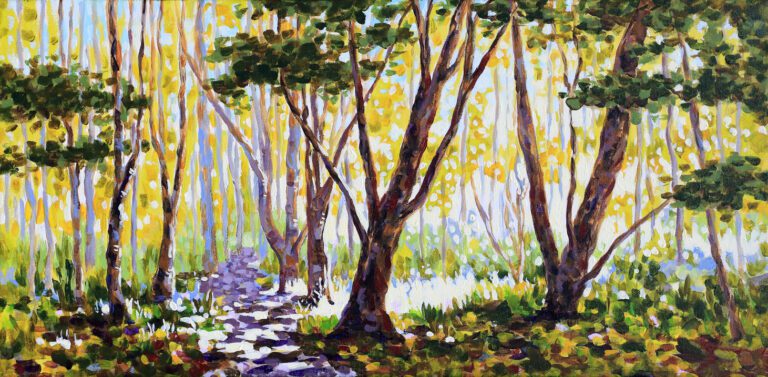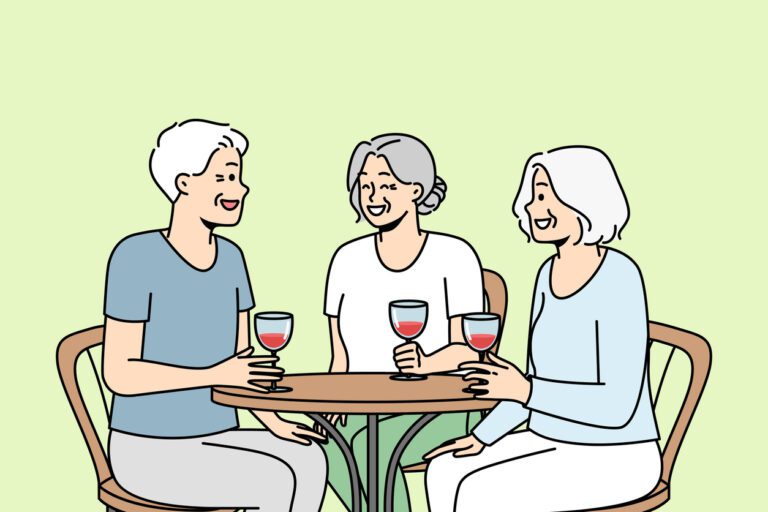Peter was slow in the shower as Maeve knew he would be. Towels flapped at the bathroom window, warming in the sun. A tui flew straight up at right angles from the rimu, then straight down again. Waiting, Maeve played around with her plans. Once Peter died, she would have a bath; she had made this promise to herself 18 months ago, and it still held good. Whenever she was showering him, drying his dripping skin or shaving him, she would think: “Afterwards, when all this is over, I will have a long slow bath.” Sometimes she included the possibility of a swim, perhaps at Kohi, Mission Bay, or the Parnell Baths. She couldn’t quite decide.
“Soap, soap,” Peter called and nodded at the soap bubbling on the floor of the shower. Panic had arrived with his illness and his hand shook as he pointed. She turned from the window and lifted the soap deftly, gripping it before it could escape.
“Actually, what I’d really like is a bath before I die.”
“What?”
“A bath. That’s what I want. Yes.” Peter held the soap like a chalice, his eyes clear but away somewhere, far from the bathroom. “Either a bath or we could go to the swimming pool, or preferably a beach. These showers, they feel like nothing. I want to be immersed.”
Maeve bent to pick up a sodden bath mat. “I don’t think we could do that,” she murmured. Peter had always been a land man. He ran and played tennis. He took showers, never baths.
“I really need this, Maeve. I need it. We can find a way.”
“Your father,” Maeve eventually told the boys, “wants to immerse himself. He wants a bath, or a swim.” As she expected, neither said anything at the time. It was Gordon who rang. “I could get Dad a swim,” he said. “We could take him in the boat and tip him out into the water. Gary and I could do it. I’ll talk to Gaz.”
*************
A few days later with the tide at Kohi high, Gordon arrived with his boat. The two boys pushed the wheelchair across the deck, eased it down a tailor-made ramp – the door from Gordie’s current renovations – and into the boat. Gary set the brakes on the wheelchair and settled himself in beside Peter. “Don’t drown him, will you?” Maeve called after them, but Peter and Gary didn’t hear. They were too busy laughing at the absurdity of driving down the road in a boat.
The wind chopped at the Waitemata. The boat skimmed out over the waves until Gordie found his spot halfway between Kohi and Rangitoto, not far from the lighthouse. He anchored while Gary eased Peter out of his shirt and jacket, leaving him in his swimmers, his bare chest. God, so thin. Both boys noticed. They saw it in each other’s eyes, but there was work to be done, they looked away and engrossed themselves in the busyness of lifting Peter. Gently does it. On the side of the boat, Gordie held Peter, suspended like a doll, while Gaz, much the better swimmer, jumped into the sea and positioned himself under his father. At a word, Gordie released him and Peter tipped slowly forward, into the sea water. Immersed at last.
As he rose to the surface, Gordie called, “Grab him.”
“No. Leave me.” Peter heard his own tone, sharper than he wished. He was grateful to his boys and he didn’t want to offend. “I just want to float,” he said more gently and, holding out his hands, he fanned the sea water, trickling it through his fingers. After a few moments, he rolled over until he faced Rangitoto, moving as he pleased, pleased to be moving.
Gordie called, warning Gary, “He’ll sink.”
“No, I won’t,” Peter called back. “I don’t feel like sinking. I won’t. Tell Gordie I don’t need help.”
Gary gave Gordie the thumbs up and turned to his father. “You are OK, Dad, aren’t you?”
“Yes, I’m just happy to be here. Very happy.”
Gary was astounded. ‘Happy’ wasn’t a word or a state that he’d ever associated with his father. Steady, affectionate, severe when he needed to be, content perhaps, probably, but happy? No.
“I could stay here.”
“Stay here?”
“Yes, look: The sky, the blue, the saltwater,” he tapped at the water, “Rangitoto.” He waved his hands at the undulating lines of Rangitoto, lines etched into Gary’s own very being. “The little waves,” Peter tapped the sea water again. “Look at me floating,” and he lay on his back, rippling, easy as an eel. “I can do things.” It was true, Peter was floating. “I could stay here. I could be a fish.”
This was absurd, a Peter Gary had never encountered, didn’t know existed. Rangitoto, the fish, the floating, the happiness.
But Dad, you’d be a hopeless fish. Gary caught the words and held them back, running them around in his mind as he swam quickly away, away from his father, burying his head in the water. He felt a strange embarrassment that his father should leave it so late to turn himself inside out, and ashamed that he, Gary, could swim away from his dying parent. But Gary knew it was too late. He’d tried and he had learnt over the years he could only give back to his father what had been given to him. Things like the right way to plant a tree, how to prune a camellia, start a motor, keep it going. Apart from that there was his sense of duty; that was something he could give to his father now.
On the boat, Gordie cleaned out his bait box and watched his father and brother floating back and forth. He thought of them talking about things he couldn’t mention and he felt a surge of relief that at least Gary could talk like that with their father.
Gary swam over and took his father’s arm.
“There’s no time left, Dad. We should go in. Look, you’ve got goosebumps.” And, sure enough he had. “Dad. Come on. Gordie’s waiting.” Gordie was dangling a hammock he’d created to lift Peter back into the boat. Above and below, Peter’s two sons heaved and joked, “What a heavy bugger!” Jokes to make everyone feel better. They heaved him up, eased him into the boat and stood each side of him, gently drying him. They dressed him in warm pants and his favourite jacket, and lifted him into the wheelchair. All the while, Peter sat quietly and leaned towards them, as close to them as possible while they worked around him, bumping up against them, feeling how solid they were. This closeness, they’d think it was an accident of his illness. Everything, as it turned out, could be construed as an accident of his illness. And all the way back to the shore the motor roared and on the road home the three men were tired and silent.
*************
“We can pass on the shower today?” Maeve was refreshed but distracted.
“Of course. I’ve had enough for today. But you should try it, Maeve.” Peter paused. For a moment she thought he must have known. Had she talked to him about the bath and the swim? “Immersion,” he continued, “It works. It washes off the old, you know,” and she felt, unusually, that he knew something she didn’t.
Peter died a week later to the day, to the hour he’d been floating in the Waitemata, the sparkling waters between Kohi and Rangitoto. “I can’t help thinking he planned it like this. Made a date with God, or something.” Gordie’s thought, not Gary’s – though on reflection, he agreed.
*************
Straight after the funeral Maeve went to bed. First though, she opened the windows to let the curtains float, the spirits out, then she sank into her sheets, curled herself up tight, white as the tiny fragile shells, the ram’s horns she’d collected for years from the beach. Each day the boys called by, or their wives, partners, grandchildren came instead, expecting her to be up and about, but each day they found her lying still. They left food until the fridge was stuffed so full they took most of it home.
Maeve couldn’t get herself up. She lay letting each day pass. Outside trains rattled by, cars revved, delivery vans slid open, passing children laughed and cried out, dogs barked, building saws whined, nail hammers jolted her awake, the music of the builders. Tom Jones? Was that possible? Hearing and not hearing she lay and lay.
At night she turned onto her back and watched the full moon waxing and waning in the dark sky above the trees. No need to draw the curtains. The moon was her friend. And the little night birds, the ruru who came with the moon. More pork more pork, they called, her invisible night-time companions. Each day she waited for the moon to rise. If it was cloudy, she turned her back on the sky and gazed at her room, her treasures, the glittering gold of her Japanese containers, the phalanx of books challenging her to read. The Bible and Montaigne, close to hand, both could help but not now. Then, on those cloudy nights she would turn back and watch clouds fighting in the dark sky.
After a month, only Gordie and Gary came. She was touched by their sense of duty. Peter would have approved. They were behaving as expected. But what of she herself? How was she expected to behave? What had she expected of herself? The bath, the swim. That’s as far as her thoughts had taken her. What now? She had left her feelings to themselves, half expecting a kind of elation, even joy. Release. But if the while I think on thee dear friend, All losses are restored and sorrows end. That kind of thing. After all those months, years of serving Peter, she could think herself released, even, entitled. But all she found within herself was a slow steady sorrow, ice where her heart once lay.
One bright night, when the moon was as large and near as it could be, a slight shadow glided across the face of that moon, like a child’s picture book. It glided straight into her titoki, right beside her window. There he sat, a small square vision, gazing down at her, before the call came, more pork, more pork. Her invisible friends made visible. Maeve was paralysed with a kind of unexpected joy. Before she could breathe, another darkness crossed the moon. A double darkness, two more ruru, their silence a noisy clamour. A quick landing in the titoki, welcomed, preened, fluffed, and all three settled, huddled in a solid wall. Maeve lay. They presided. Were they watching or were they sleeping? She could not tell. All she knew was that they were for a moment her companions. And as the sun rose, in the distance a call came, more pork, more pork, their wide eyes gazed down at her, one last look, and they flew away. All three.
As soon as she could, quite early, for it was her early riser Gordie that she rang, Maeve rose from her bed and ran to her phone.
“Gordie, you won’t believe what happened.”
Gordie listened with what Maeve interpreted as intense interest then said, “That’s so good, Mum. So good. What does the day hold for you?”
“Well,” she said, “I think I might go to the beach. But I’m not sure I’ll swim. I’ll wait and see.” But already she knew she wouldn’t swim. Somehow that time had passed. She would get up, have a shower, and then go to the beach.
She’d go to Kohi and for a while she’d sit there, find the exact spot where she and Peter had kissed each other, where she’d fallen in love such a long time ago. But she wouldn’t swim.
She would find a new life slowly and differently.
About the Author
Penelope Hansen lives in Auckland and has worked with books and words one way or another for 40 years. She has a degree in English and a conflict resolution qualification. She has a Queen’s Service Medal for services to literature and the community. Her main interests are family and the planet, past, present and future in both cases; the built environment; trees; exploring the world when and where possible. And always, reading.







